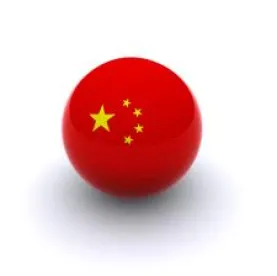A U.S. Federal Court has ruled that existing law does not allow U.S. companies to seek relief against imported goods from China that benefit from Chinese government subsidies.
Any company involved in U.S.-China trade may be affected by a new court ruling on the application of U.S. trade law to imports from China. The new ruling will make it difficult or impossible for Chinese government subsidies provided to manufacturers or exporters in China to be addressed under existing U.S. law. Companies with pending or possible future interests in anti-subsidy trade actions involving China should watch this issue very closely.
The U.S. Court of Appeals for the Federal Circuit (CAFC) issued a decision on December 19, 2011, that will impact a large number of U.S. trade remedy cases involving China. In GPX International Tire Corp. v. United States, 2011-1107-09, a unanimous CAFC panel ruled that the U.S. Department of Commerce (DOC) may not apply countervailing duty (CVD) law to non-market economy (NME) countries, such as China.
When goods are exported from countries with market economies, i.e., non-communist countries, U.S. law allows for the imposition of both antidumping (AD) duties, which are imposed on goods found to be sold by exporters at less than fair value, and CVD duties, which are imposed on goods found to have benefitted from certain kinds of government subsidies. For many years, DOC refused to apply CVD law to NME countries, maintaining that subsidies, which are devices “used by governments to distort the signals that the market gives to firms,” by definition do not exist in economies that are not controlled by market forces. In a 1986 case, Georgetown Steel Corp. v. United States, 801 F.2d 1308 (Fed. Cir. 1986), the CAFC sustained DOC’s approach.
Under pressure from various U.S. industries, the agency reversed its position in 2007. DOC issued a memorandum stating that while it planned to continue to treat China as an NME for purposes of the AD law, China was “significantly different from the Soviet-style economies at issue in Georgetown Steel,” and that these differences enabled the agency to calculate whether the Chinese government subsidized specific goods. Since 2007 DOC has applied both AD and CVD duties in numerous cases involving China.
In GPX, invoking the principle of “legislative ratification,” the CAFC concluded that DOC is barred by statute from applying the CVD law to NME goods. DOC argued that Georgetown Steel did not independently interpret the statute, but rather afforded deference to DOC’s interpretation of an ambiguous statute, such that the court was required to defer again now that the agency had changed its interpretation. The CAFC rejected this argument. “Even if Commerce were correct aboutGeorgetown Steel,” the CAFC held, “Congress thereafter ratified the prevailing interpretation by amending and reenacting the countervailing duty statute in 1988 and 1994, thereby requiring that we construe the statute as barring countervailing duties in the NME context.”
The CAFC explained that once Congress has ratified an agency’s statutory interpretation through re-enactment, the agency no longer has discretion to change its interpretation. Based on a review of relevant legislative history, the Court found that “Congress was well aware of Georgetown Steel and that it rejected a statutory provision to supersede it—a provision that made the same distinction Commerce now proposes. … If Commerce believes that the law should be changed, the appropriate approach is to seek legislative change.”
It is unclear what course the U.S. government will take in response to the CAFC’s decision in GPX. One option is to further appeal the decision, perhaps first to the CAFC en banc, ultimately to the Supreme Court of the United States. A second option, which the Obama administration could pursue simultaneously with the first, would be to follow the court’s suggestion and seek legislation that would overturn the GPX decision and provide DOC with statutory authority to impose both AD and CVD duties against NME goods. A third option, one that would represent a radical shift in agency practice, would be for DOC to declare China a market economy nation. This approach would allow DOC to apply CVD law to China, but would also require the agency to apply market economy AD methodology to China, an alteration that China has long sought and the United States has long resisted.
Whatever the administration decides to do, one thing is clear: Respondents in every pending CVD case against China are going to challenge the legality of DOC’s subjecting them to the CVD law. U.S. and Chinese manufacturers alike will be watching very closely to see how DOC implements the CAFC’s decision in GPX.





 />i
/>i
